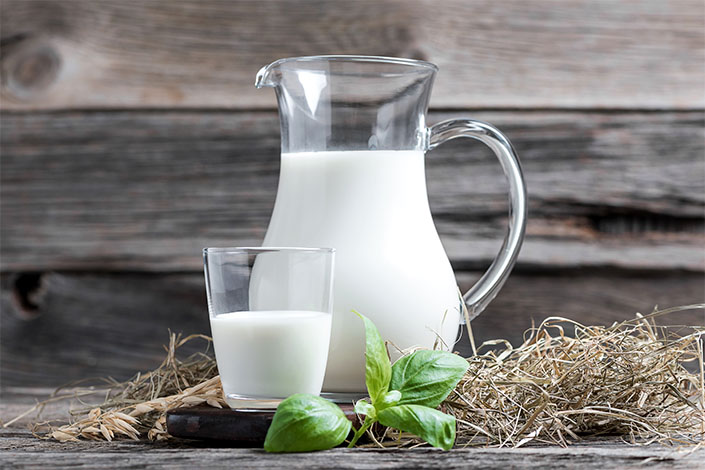
The Ultimate Guide to Lactose-free Milk: Better Than Traditional Milk?
abril 19, 20215 Proven Benefits of Milk
Milk is an essential source of nutrition for all ages. One of the main perks of milk is that it is a crucial source of calcium. For instance, children and teenagers can benefit from it, supporting bone density to prevent osteoporosis later in life. Milk is a key diet component for pregnant, breastfeeding, and middle-aged women and the elderly.
Besides, milk is rich in protein, calcium, and vitamin B12, among other important nutrients. Therefore, it’s safe to say that milk is a smart food choice, as it is rich in nutrients the body needs every day. So, in today’s article, we’re going to dive deep to discover why drinking milk is key to stay healthy and its benefits.
Nutritional Properties of Milk
Protein: Our body’s building material. Protein is one of the main macronutrients, which contribute to muscle and skeletal function, among other things. A glass of milk provides 8 grams of protein. That is a lot for a drink, and including milk in your diet is an easy way to hit the required daily protein values, which vary depending on sex, age, and level of activity.
Fat: Milk fat allows the body to assimilate fat-soluble vitamins. It’s an excellent flavor enhancer and a great addition to drinks, such as coffee and recipes.
Carbohydrates: Lactose is the carbohydrate of milk. A glass of milk contains 12 grams of carbohydrates. However, a glass of lactose-free milk only provides 5 grams, as compared to traditional dairy.
Calcium: Probably the most well-known mineral in milk. Half a liter of milk alone provides three-quarters of an adult’s daily calcium needs. Your body needs calcium to keep your bones strong and to carry out other essential functions. Almost all calcium is stored in the bones and teeth, thus, supporting their structure and rigidity.
Potassium: This mineral is vital for nerve and muscle functions, as well as regulating blood pressure. Since potassium is a type of electrolyte, your body needs it for the nerves and muscle contraction’s proper function and a constant heart rate. But that is not all; it also enables nutrients to flow into cells.
Riboflavin (vitamin B2): Half of your body’s daily riboflavin requirements can be found in only half a liter of milk. Vitamin B12 stimulates the body to make new cells, maintain the nervous system, and produce red blood cells. Half a liter of milk provides the daily requirement of B12.
Vitamin D: It assists the body in assimilating calcium. Vitamin D is necessary for your immune system, fighting viruses and bacteria, and strengthening the muscles and skeletal structure.
Phosphorus: Interacts with vitamin B and positively affects the metabolism. Phosphorus also contributes to strong bones and healthy teeth.
Iodine: Necessary to regulate cell growth and energy balance, iodine is key for the metabolism’s proper function. It is crucial for growing children and teens, as it plays a significant role in growth.
Zinc: Zinc promotes good functioning of the immune system and our body’s ability to convert macronutrients, such as carbohydrates, fats, and proteins into energy. This mineral has many functions, including blood formation and immunity, and it plays a huge role in healing processes. Besides, our body needs zinc to create several hormones.
Selenium: Selenium has a key role in our immune system and metabolism. It acts as an antioxidant, and it can be found in the main enzymes that help protect the body’s cells. Also, selenium is necessary for the thyroid gland to function correctly.
Benefits of Milk
Now that you know what’s inside your glass of milk let’s see the benefits of drinking milk. First, it’s important to note that milk is a naturally nutrient-dense food, meaning that it contains numerous nutrients in a relatively small amount.
Milk provides a clean energy source and good-quality macronutrients, readily bioavailable, which means you can easily extract its nutrients, compared to other nutrient sources.
Not only that, but milk is also naturally high in protein in a limited amount of calories, so it can be an excellent addition for athletes and people who want to improve their body composition, build muscle and burn fat.
Furthermore, milk has the unique capacity to be converted into countless dairy products, from yogurts to cheeses, butter, and spread. Milk is one of the primary superfoods available in nature. Dairy products are not just good sources of vitamins, minerals, and macronutrients, but they’re also super rich in probiotics.
Probiotic foods are living organisms that live in our intestines. When ingested in sufficient quantities, these have beneficial effects on foods such as cheese, milk, and yogurt. Among its benefits, these organisms help rebalance the intestinal microbiome. This positively improves the digestive process, strengthens the immune system, and promotes the absorption of nutrients, thus keeping us safe from viral and bacterial infections.
There’s no doubt that dairy products are vital components of a healthy and balanced diet. So, based on what we know from its components, we can name a few of its most significant benefits:
Higher bioavailability of calcium
Milk is high in calcium as compared to other foods. Unlike plant-based milk, cow milk provides higher amounts of calcium and other nutrients necessary for bone and teeth health. Although there are plant-based sources of calcium, these are not as high in bioavailability as cow milk. In other words, it becomes fully available to its expected biological destination without extra unnecessary waste.
Milk is high in tryptophan
Tryptophan is the precursor of serotonin and melatonin, which are necessary to sleep. Serotonin and melatonin are also known to improve mood and prevent anxiety and depression.
Low calorie at a great nutritional value
It is no coincidence that milk is considered one of the most complete foods by nutrition experts. Milk is rich in fats, proteins, vitamins, and minerals, and at the same time, it does not provide too many calories for its nutritional value.
Promotes healthy bacteria
Milk is a key player in the formation of healthy gut bacteria. These bacteria prevent the development of viruses and bacterial infections. Thus, strengthening the immune system.
If you want to learn more about the benefits of milk, stay tuned to our blog! We’ll be posting a lot of interesting content!



